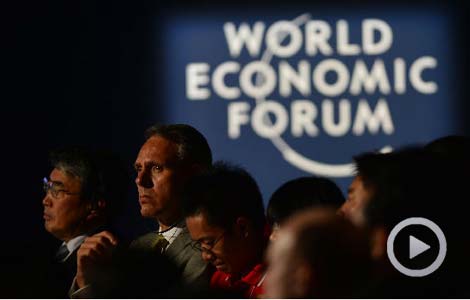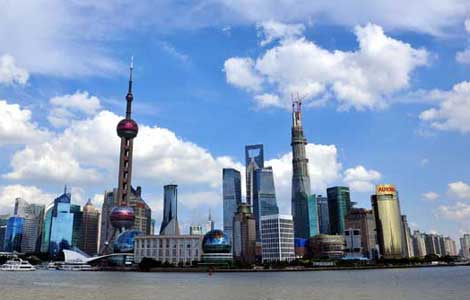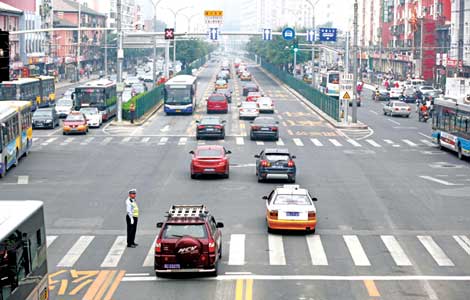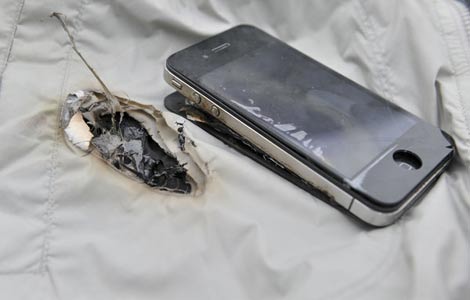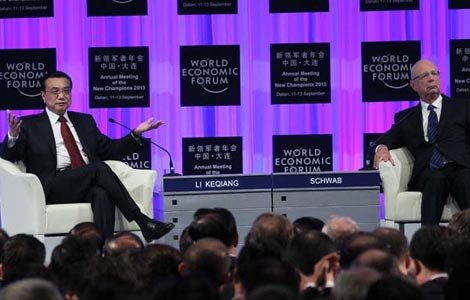China's new 'Green Fence' puts pressure on US recyclables
Updated: 2013-09-13 11:44
By Caroline Berg in New York (China Daily)
|
||||||||
Recyclable waste is a very important export for the US, and China is a big buyer. Due to a recent initiative, however, the US may be forced to find a better recycling system on the home front.
In February 2013, China launched its Operation Green Fence to keep trash out of China. The initiative targets poorly sorted or dirty shipments of recyclable waste from foreign exporters. It involves random inspection of all forms of imported waste, such as metal, plastic, textiles, rubber and recovered paper materials.
"We're hoping that it helps to improve the quality of recyclables that are being collected, and then it benefits the entire global recycling industry," Valerie Androutsopoulos, principal at Baltimore-based recycling consultancy Vangel Inc, said in terms of the initiative's influence on US recycling practices.
"It will then reduce the amount of junk that is getting sent to China that should not have been getting sent and it will level the playing field for everybody," Androutsopoulos told China Daily.
The US is unprepared for this export block on a longtime dependence on exporting recyclable waste to China, according to a report by Vangel, because the country does not have the facilities readily set up to adequately sort and clean materials to pass China's new waste-import standards.
In 2011, the US collected 52.8 million tons of recycling and exported a record of more than 23 million tons, according to an Institute of Scrap Recycling Industries report from 2012.
About 15.8 million tons of that went to China, which the report said was 23 percent more than in 2010.
In a $1 billion a year business, more than half of the recycled plastics profit goes to China. The Green Fence has caused an 11 percent decline in export value of US plastic scrap in the first half of 2013, compared to the same period in 2012, according to Quartz data.
Since China enacted its Operation Green Fence initiative this year, China has rejected about 68,000 tons of waste in the first five months, according to an article by Quartz, a digital news outlet focused on the global economy.
Chinese recyclers are no longer buying plastic items with the numbers 3, 6 or 7 inscribed in the little recycling icon printed on them, according to a report by Oregon Public Broadcasting. The list of plastics China no longer accepts include disposable coffee cup lids, PVC pipes, some kinds of clamshell containers - such as fruit containers from a grocery store - and garden planters with flexible walls.
Alternative options for the US to dispose its trash are few, said the Vangel report. The recyclable waste may end up in domestic landfills or it may find a home in other Asian countries where they will be sorted in order to meet Chinese specifications, it said.
"If [the US] is just going to ship the same dirty stuff to another country who is either desperate for those jobs or where labor is cheaper, and think, 'Yesterday it was China, today it's going to be somebody else' - I don't agree with that," Androutsopoulos said.
Waste-dumping systems vary across the US. While San Francisco and Portland, Oregon, keep almost 80 percent of their waste from getting dumped in landfills, Chicago and Oakland, California, keep out about 40 percent, whereas New York City only diverted 16.6 percent of its waste in 2012, according to a Wall Street Journal story published in March.
New York Mayor Michael Bloomberg has proposed an expansion of the city's recycling program, including a new center in Sunset Park, Brooklyn and 1,000 new recycling receptacles.
Meanwhile, essentially only plastic bottles and jugs with the number 1 or 2 inside the recycling icon printed on the bottom of the containers can be recycled, the Wall Street Journal reported.
Processing factories still depend on US plastic and plastics smuggling at ports and in cities is on the rise, according to Xinhua news agency.
China imports about 40 percent of the world's plastic scrap and collects the rest domestically, according to the Quartz report, and reprocessed plastic contributes to a variety of products, whether it is for polar fleeces or stadium seats. Chinese manufacturers may pressure the government to relax the policy in the months to come, Quartz reported.
"They may be more desperate for those materials and those jobs, but that doesn't make it right for us to continue with [these export practices]," Androutsopoulos said. "Shipping [our waste] to someone else and making our trash someone else's problem is not an acceptable solution."
carolineberg@chinadailyusa.com
(China Daily USA 09/13/2013 page11)
Most Viewed
Editor's Picks

|

|

|

|

|

|
Today's Top News
Economist calls for global Marshall Plan and currency
China's new 'Green Fence' puts pressure on US recyclables
Markets hold breath over Chinese cotton policy
One in four men in Asia-Pacific admit to rape
China supports trade ties: Michigan governor
WB head to discuss climate in China visit
US moves against China firms criticized
Navy chief cruises into DC
US Weekly

|

|

